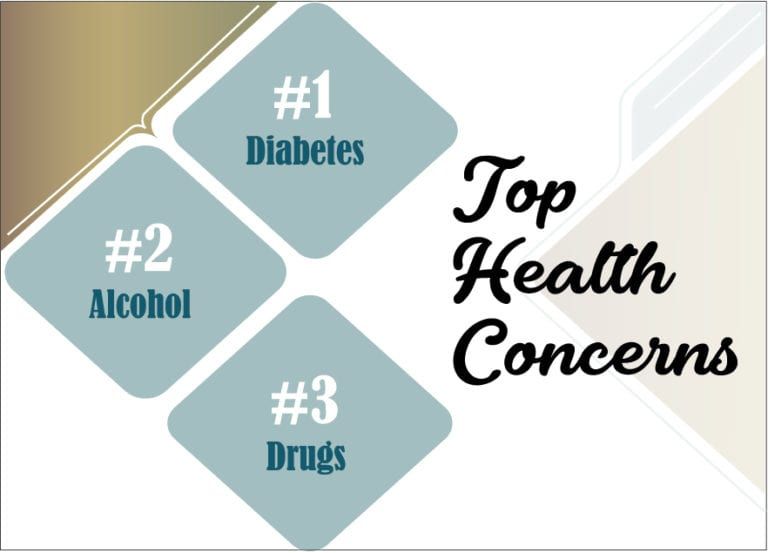September: Top Health Concerns

Uintah Basin Healthcare recently completed a Community Health Needs Assessment (CHNA), which results in showcasing our community’s perception of top health concerns.
#1: Diabetes – September is National Childhood Obesity Awareness Month. 1 in 5 children in the United States has obesity, which is a known contributor to type 2 diabetes. Children with obesity are more likely to be bullied and to suffer from social isolation, depression and low self-esteem. They are also more likely to have obesity as an adult, leading to lifelong physical and mental health problems. Currently, 1 in 3 American adults have prediabetes.
Parents, be a role model. Teach the 5210=8 rule by example. Provide nutritious foods with 5 fruits and/or veggies daily, limit screen time to a maximum of two hours daily, get the required 1 hour of physical activity daily, drink water instead of sugary drinks, and get at least 8 hours of sleep each night.
#2 & #3: Alcohol Abuse & Drug Use – September is National Recovery & Pain Awareness Awareness Month. 1 in 7 people will develop a substance use disorder at some point in their lives.
According to Substance Abuse and Mental Health Services (SAMHSA), 25% of all people reported binge drinking, defined as having 5 or more standard drinks for men and 4 or more standard drinks for women on the same occasion on at least 1 day in the past 30 days. Alcohol misuse contributes to 88,000 deaths in the United States each year.
According to SAMHSA, 18% of all people said they used an illicit drug or misused prescription drugs in the past year. Drug overdose accounts for over 67,000 deaths in the United States each year.
The CDC reports that almost 70% of drug overdose deaths involve an opioid. What can we do to prevent opioid misuse?
- Talk about it. Opioids can be dangerous – have the conversation.
- Be safe. Only take opioid medications as prescribed, and store in a secure place.
- Don’t be the dealer. Dispose of unused medication properly. (The UBMC Pharmacy and DVMC Pharmacy will be installing dropboxes for safe drug disposal this year.)
- Understand pain. Treatments other than opioids are effective in managing pain and have less risks for harm. Talk to your healthcare provider about an individualized plan that is right for you.
- Know addiction. Addiction is a chronic disease that changes the brain and alters decision making. With the right treatment and support, people do recover. There is hope.
- Be prepared. Many opioid overdose deaths occur at home. Having naloxone, an opioid overdose reversing drug, could save a life. (Talk to your pharmacy, the health department, or local counseling centers to know where to get it and how to use it.)

